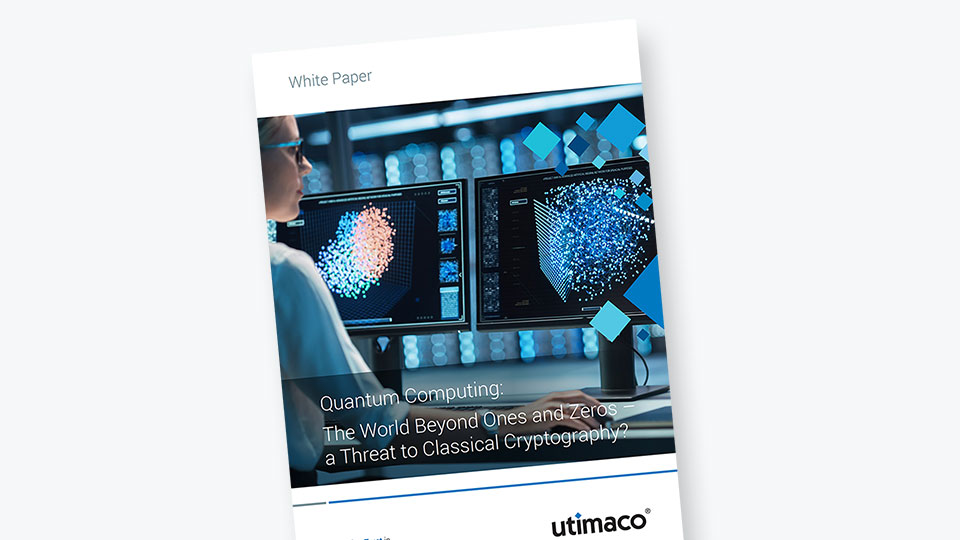In what follows, we will explain how the manufacturing industry can leverage the opportunities that quantum computing provides while remaining mindful of the possible threats it may also present.
The post-quantum world has much to offer the manufacturing industry. Quantum computers are more powerful, faster and more efficient than the traditional computers used today. It is expected that quantum computing will be widely available by 2030. But that does not mean that its effects will not be felt sooner, rather than later by manufacturers. Therefore, it is imperative that manufacturing organizations begin taking steps now to protect themselves from future cyberattacks.
Here is what you need to know about the anticipated benefits and threats for quantum computing in manufacturing.
Opportunities to Expect with Quantum Computing in Manufacturing
Quantum computing is expected to help reshape the global industrial value creation for manufacturing. According to a recent case study by Bartłomimej Gładysz and Tim van Erp, with PQC, manufacturing companies can maintain and improve their competitive edge.
The chart below illustrates a conceptual framework that summarizes focal links between quantum technologies and their links between manufacturing domains and fields of applications.
Source: Case study (55th CIRP Conference on Manufacturing Systems, Quantum Technologies in Manufacturing Systems: Perspectives for Application and Sustainable Development)
In summarizing the researcher’s major findings, the figure suggests that:
Quantum computing with the use of AI could be used to organize manufacturing systems and optimize:
- Value networks
- Business models
- Services
New products could be designed that have enhanced life cycles with the aid of:
- Quantum simulation
- Imaging
- Sensors
Quantum technologies will also be useful for improving domains like:
- Manufacturing processes
- Human
- Equipment
Quantum computing in manufacturing can also potentially aid in:
- Optimizing design, planning and scheduling tasks in manufacturing systems
- Developing new materials
- Simulating material/product properties and behavior
Consider the following four categories for potential use cases for quantum computing manufacturing:
Discover
Traditional computers that are in use today struggle with modeling. Because quantum computing offers an exponentially large state space, it can dramatically benefit materials and drug development. While there are already approximately 15M known chemical structures and 300,000 materials in existence, there are many more waiting to be discovered. Quantum computing can help manufacturing in the areas of:
- Chemistry
- Materials science
- Condensed matter physics
Design
Currently, computer simulation is used to design and pre-test products. For example, aerospace hardware components need to be 3D-modeled and require individual engineering safety margins. The problem with these safety margins is that they can result in over-engineered, overweight products that cost more than needed. This results in limited commercial viability of products. In the post-quantum computing world, computers will be able to more accurately model hardware components and better analyze safety margins to create better designs that improve manufacturing costs without sacrificing safety and overall system performance.
Control
Quantum computer in manufacturing, coupled with machine learning, is anticipated to significantly improve manufacturing in such areas as:
- Semiconductor chip fabrication
- Production flows and robotics
- Analyzing software systems for better quality control
Supply
Supply chains are becoming more complex and need to be agile. Quantum computing makes digital supply changes more agile, with accelerated decision-making and enhanced risk management that helps reduce operational costs and lost sales because of discontinued or out-of-stock products. By enhancing agility, it is expected that quantum technology could eventually transform the supply change completely.
Threats that quantum computing Brings to the Manufacturing Industry
A major concern with quantum computing in manufacturing is the threats that it could potentially bring to the security of IT infrastructure. Remember, quantum computers are much more powerful than the traditional computers currently in use. Today’s computers use cryptographic algorithms that adequately encrypt their data and assign and verify digital identities to users, devices and applications. These algorithms typically in use now include RSA, ECC or DSA. The problem is that these algorithms are not strong enough to withstand a cyberattack from a quantum computer which could break almost every asymmetric encryption protocol in use today. Thus, internet data is likely to be unprotected and at risk of a PQC attack.
New algorithms and protocols - referred to as Post Quantum Cryptography (PQC) - have been preliminarily adopted by NIST to replace those that are currently in use to protect data from attack. These updates to algorithms and protocols are expected to greatly reduce the risk of cyber breaches by those who intend to use quantum computing to commit cybercrimes instead of for good.
There is another significant threat to the future CRQC (Cryptographically Relevant Quantum Computers) aimed directly at organizations. Right now, hackers are harvesting encrypted data with the intention of retroactively decrypting the data using a quantum computer, a process known as “steal now decrypt later.” Then hackers could attack the manufacturer's systems and claim intellectual property, personal and sensitive data or disrupt processes.
An intermediate solution to these problems is to begin using a crypto-agile infrastructure and hybrid applications with industry-compliant algorithms plus the suitable NIST PQC candidate algorithms to protect your computer systems. The infrastructure needs to be suitable, and the firmware of servers and HSM retrofittable. Especially for the use of digital signatures and public key cryptography in your environment, you should check
- which algorithms your are using
- if they could be compromised by a quantum computer and
- which PQC algorithms could also fulfill your needs
Start planning your migration now: Our Q-safe simulator allows you to test recommended PQC algorithms within your infrastructure.
The Time to Prepare is Now
There is no doubt that quantum computing is coming, and it will have a significant impact on all industries, including manufacturing. Using Quantum computers in manufacturing has great potential for optimizing business processes and operations. The time to prepare for the quantum computing era’s benefits and threats is now before it arrives.
Read more about Post Quantum Cryptography, and prepare yourself for the post-quantum future by accessing the following:
Utimaco’s portfolio is prepared for the post quantum age
Utimaco has been following the development of quantum computing since 2016 and is active in a variety of research projects. We have also taken this into account in the development of our cybersecuirty solutions: Therefore, our General Purpose HSM SecurityServer is designed with crypto agility in mind, and is field-upgradeable with PQC algorithms recommended by NIST and BSI via our firmware extension Q-safe.
Furthermore Utimaco’s PKI solution u.trust Identify has successfully completed a Proof of Concept for the support of PQC algorithms.





